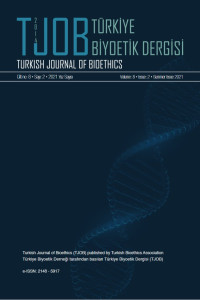Öz
Communication is the cornerstone of the physician-patient relationship. However, a difference in medical knowledge may create a communicative gap, negatively affecting the patient experience. Rather than bridging the difference in knowledge, physicians who overutilize technical medical language can further damage the relationship. To prevent this, Voice can be analyzed through an ethical lens as it relates to patient autonomy and patient understanding, as comprehension is required for the patient to give informed consent. Research suggests that improved communication and empathy radically increases patient satisfaction. This end is achieved by incorporating not only the Voice of Medicine but also the Voice of the Lifeworld. The former employs scientific jargon and technical-speak while the latter incorporates the patient’s lived experiences into the medical dialogue. The Voice of the Lifeworld is a valuable tool that contextualizes disease and dissolves communication barriers. Physicians must appreciate patient perspectives to establish trust and pursue meaningful relationships. The use of either Voice is situation-specific and should be balanced according to the patient’s context; failure to do so will result in patient dissatisfaction. With this framework as a foundation, physicians can further optimize interactions with their patients by matching Voice not only to the medical context, but further extending Voice into a more personal context. Attachment theory provides a second lens that predicts how one may respond to medical professionals attempting to build trusting relationships. Depending on the attachment style, patients may be easier to comfort and build rapport with. Altering the communication mix according to Voice and attachment style will offer a truly personalized healthcare experience to each patient. Future studies should test this framework and attempt to determine attachment style quickly and methodically, so trust can be built early in the relationship. The outcome of this proposed process suggests that revised medical training be implemented to satisfy patients’ Lifeworld Voice and to increase clarity within the physician-patient relationship to promote ethical communication.
Anahtar Kelimeler
Patient autonomy beneficence paternalism health communication attachment theory
Öz
Communication is the cornerstone of the physician-patient relationship. However, a difference in medical knowledge may create a communicative gap, negatively affecting the patient experience. Rather than bridging the difference in knowledge, physicians who overutilize technical medical language can further damage the relationship. To prevent this, Voice can be analyzed through an ethical lens as it relates to patient autonomy and patient understanding, as comprehension is required for the patient to give informed consent. Research suggests that improved communication and empathy radically increases patient satisfaction. This end is achieved by incorporating not only the Voice of Medicine but also the Voice of the Lifeworld. The former employs scientific jargon and technical-speak while the latter incorporates the patient’s lived experiences into the medical dialogue. The Voice of the Lifeworld is a valuable tool that contextualizes disease and dissolves communication barriers. Physicians must appreciate patient perspectives to establish trust and pursue meaningful relationships. The use of either Voice is situation-specific and should be balanced according to the patient’s context; failure to do so will result in patient dissatisfaction. With this framework as a foundation, physicians can further optimize interactions with their patients by matching Voice not only to the medical context, but further extending Voice into a more personal context. Attachment theory provides a second lens that predicts how one may respond to medical professionals attempting to build trusting relationships. Depending on the attachment style, patients may be easier to comfort and build rapport with. Altering the communication mix according to Voice and attachment style will offer a truly personalized healthcare experience to each patient. Future studies should test this framework and attempt to determine attachment style quickly and methodically, so trust can be built early in the relationship. The outcome of this proposed process suggests that revised medical training be implemented to satisfy patients’ Lifeworld Voice and to increase clarity within the physician-patient relationship to promote ethical communication.
Anahtar Kelimeler
Patient autonomy beneficence paternalism health communication attachment theory
Ayrıntılar
| Birincil Dil | İngilizce |
|---|---|
| Konular | Sağlık Kurumları Yönetimi |
| Bölüm | DERLEME |
| Yazarlar | |
| Yayımlanma Tarihi | 21 Ağustos 2021 |
| Yayımlandığı Sayı | Yıl 2021 Cilt: 8 Sayı: 2 |


